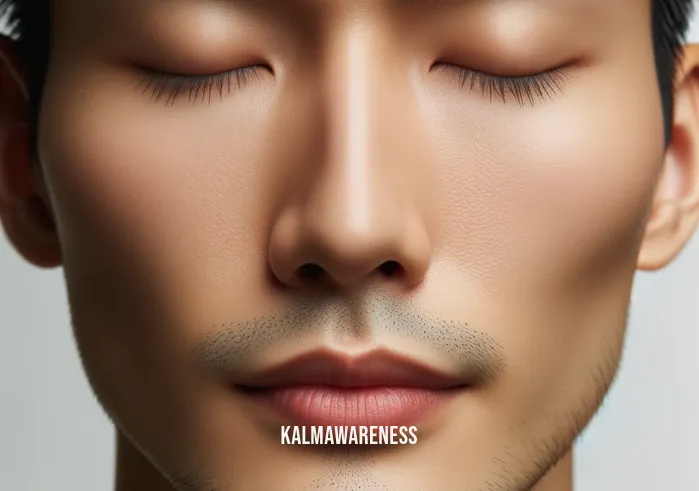Exploring the Depths of Yoga and Mindfulness Therapy
In recent years, yoga and mindfulness therapy have emerged as prominent pathways to achieving holistic health and well-being. This first segment of our in-depth exploration will lay the groundwork for understanding how these ancient practices have been adapted in modern therapeutic contexts.
The Intersection of Yoga and Mindfulness in Modern Therapy
Yoga and mindfulness therapy represent a fusion of physical postures, mental exercises, and spiritual practices. Historically rooted in ancient traditions, these practices have found their place in contemporary health and wellness spheres, particularly in addressing mental and physical ailments.
The Role of Mindful Movement in Sleep
One key aspect of yoga and mindfulness therapy is its application in improving sleep patterns. Practices such as mindful movement sleep techniques have shown promise in enhancing sleep quality. These techniques combine gentle yoga poses with mindfulness meditation, focusing on body awareness and relaxation, essential for a good night’s sleep.
Yoga for Mental Health: More Than Just an Exercise
Yoga’s benefits extend beyond physical fitness. It’s a powerful tool for mental health, as it involves attaining a peaceful state of mind in which thoughts are not occupied by worry. This peaceful state of mind is particularly beneficial in managing anxiety and stress.
EMDR and Meditation: A Synergistic Approach
Combining Eye Movement Desensitization and Reprocessing (EMDR) with meditation offers a unique therapeutic approach. This synergy allows individuals to process traumatic memories more effectively, leading to improved emotional well-being.
Unpacking the Layers of Mindfulness
Mindfulness, a core element of yoga therapy, involves a heightened state of awareness and presence in the moment. It’s an essential element of some meditation exercises that cultivates a deeper understanding and acceptance of one’s thoughts and feelings.
The Power of Body Awareness
Yoga encourages individuals to ‘touch that body part’ mindfully, enhancing self-awareness and promoting a sense of connectedness with oneself. This concept of body awareness is particularly effective in managing physical pain and emotional distress.
Mindfulness for Teens: Navigating Adolescence
Mindfulness practices can be particularly beneficial for teenagers walking through the complex journey of adolescence. These practices help in developing coping strategies for stress and anxiety common during these formative years.
Yoga’s Holistic Approach to Well-being
Yoga’s holistic approach to health is not just about physical postures; it’s a comprehensive lifestyle practice. This includes elements like sustainable self-care, which emphasizes the importance of maintaining a balanced and sustainable approach to personal well-being.
The Role of Chakras and Frequencies
In yoga, the concept of chakras and their associated frequencies, such as the 256 Hz benefits for the throat chakra, play a crucial role. Understanding the galactic chakra and its significance can offer deeper insights into the energetic dimensions of yoga and mindfulness practices.
Meditation Variants: Flexibility in Practice
Meditation, an integral part of yoga and mindfulness therapy, can be adapted to suit individual needs and preferences. Whether it’s meditating while lying down or engaging in clearing energy meditation, there’s a style that fits everyone.
The Impact of Meditation on Mental Clarity
Meditation is not just about relaxation; it’s about achieving mental clarity and stability. Learning how to spell stabilize in the context of mental equilibrium can be significantly enhanced through regular meditation practice.
Conclusion: A Journey into Self-Discovery
This introductory segment has provided an overview of the multifaceted nature of yoga and mindfulness therapy. From improving sleep to enhancing mental health and exploring the subtleties of meditation, these practices offer a comprehensive approach to well-being.
As we delve deeper into this topic in the next chapter, we will explore specific yoga and mindfulness techniques, their applications, and the scientific evidence supporting their efficacy. Stay tuned for a deeper understanding of how yoga and mindfulness therapy can be tailored to individual needs, fostering a journey of self-discovery and holistic health.
Continue reading to uncover more about the transformative power of yoga and mindfulness therapy.

Enhancing Well-being Through Yoga and Mindfulness Practices
As we delve deeper into the world of yoga and mindfulness therapy, it’s essential to understand the diverse ways these practices can enhance our physical, mental, and spiritual well-being. This chapter will explore various facets of yoga and mindfulness, emphasizing their significance in our daily lives.
The Multidimensional Benefits of Yoga and Mindfulness
Yoga and mindfulness, often interwoven, offer a range of benefits that cater to different aspects of our health. Let’s examine some key areas where these practices make a significant impact.
Physical Health and Yoga
- Improved Flexibility and Strength: Regular yoga practice significantly enhances flexibility and muscle strength.
- Enhanced Respiratory Function: Breathing exercises in yoga improve lung capacity and respiratory health.
- Balanced Metabolism: Yoga can aid in regulating metabolic processes, contributing to overall physical balance.
Mental and Emotional Benefits
- Stress Reduction: Mindfulness and yoga are known for their ability to lower stress levels, promoting a calmer mind.
- Emotional Balance: These practices help in managing emotions, leading to greater emotional stability and resilience.
Spiritual Growth
- Deeper Self-awareness: Engaging in yoga and mindfulness leads to increased self-awareness and a deeper understanding of one’s inner self.
- Connection with the Present Moment: Mindfulness practices encourage living in the present, cultivating a sense of peace and contentment.
Yoga and Mindfulness Techniques: A Comparative Overview
| Technique | Description | Primary Benefit |
|---|---|---|
| Hatha Yoga | A gentle form focusing on physical postures | Enhances physical strength and flexibility |
| Vinyasa Yoga | Involves a series of fluid movements | Improves cardiovascular health |
| Mindful Breathing | Focused breathing exercises | Reduces stress and anxiety |
| Guided Meditation | Meditation led by an instructor | Enhances mental clarity and focus |
| Yoga Nidra | A form of guided relaxation | Promotes deep relaxation and restorative sleep |
Incorporating Yoga and Mindfulness into Daily Life
Starting with Simple Practices
For those new to these practices, it’s important to start small. Simple, daily exercises can include:
- Five Minutes of Mindful Breathing: Focusing on your breath can rouse yoga energy and calm the mind.
- Gentle Stretching Exercises: Incorporating basic yoga postures can help in easing into a regular practice.
Mindfulness in Everyday Activities
Mindfulness can be practiced in everyday activities such as eating, walking, or even during work. This practice involves keeping in mind the current activity’s purpose and being fully present in the moment, as explored in keep in mind definition.
The Role of Meditation Variants in Mindfulness Therapy
Various forms of meditation play a critical role in mindfulness therapy. Understanding these variants is crucial for tailoring practices to individual needs.
- Mindful Hypnobirthing: This technique, explained in mindful hypnobirthing, combines mindfulness with childbirth preparation, easing the birthing process.
- Judgment-Free Awareness: Learning to meditate without judgment, as described in judgment of the wise, is key to developing a deeper mindfulness practice.
Conclusion: A Path to Holistic Health
This chapter has expanded our understanding of yoga and mindfulness therapy, highlighting their multifaceted benefits and practical applications in daily life. From physical health improvements to emotional balance and spiritual growth, these practices offer a comprehensive approach to well-being.
In the next segment, we will explore advanced techniques and the scientific evidence supporting the efficacy of yoga and mindfulness therapy. Stay tuned to deepen your understanding and learn how to integrate these practices more effectively into your life.

Harnessing Hope Through Yoga and Mindfulness Practices
In this exploration of yoga and mindfulness therapy, we turn our focus to the themes of hope and inspiration. These practices offer more than just physical and mental benefits; they are a source of profound inspiration and a beacon of hope for many.
The Inspirational Power of Yoga and Mindfulness
Yoga and mindfulness therapy go beyond physical and mental wellness; they serve as a journey towards self-discovery and inner peace. By incorporating practices into daily life, individuals often find a newfound sense of hope and purpose.
Quotes That Echo the Essence of Yoga and Mindfulness
- “Yoga does not change the way we see things; it transforms the person who sees.” – B.K.S. Iyengar
- “Mindfulness isn’t difficult; we just need to remember to do it.” – Sharon Salzberg
- “The very heart of yoga practice is ‘abyhasa’ – steady effort in the direction you want to go.” – Sally Kempton
- “In the midst of movement and chaos, keep stillness inside of you.” – Deepak Chopra
- “The present moment is the only time over which we have dominion.” – Thích Nhất Hạnh
These quotes encapsulate the transformative power of yoga and mindfulness, emphasizing their role in shaping our perceptions and experiences.
Real-Life Inspirations: Stories of Transformation
Finding Peace Amidst Chaos
A remarkable example is Jane, a middle-aged woman who turned to yoga and mindfulness therapy during a turbulent phase in her life. Struggling with anxiety and uncertainty, she found solace in pretty soon meaning, a mindfulness concept that taught her to embrace the present and find peace in the ‘soon’ rather than the ‘now.’
Overcoming Challenges Through Mindful Practice
John, a veteran suffering from PTSD, experienced significant improvement through how we get deep so fast, a mindfulness technique that allowed him to connect deeply with his inner self, fostering healing and hope.
The Role of Yoga and Mindfulness in Nurturing Hope
The Journey to Emotional and Mental Freedom
Yoga and mindfulness practices offer a pathway to emotional and mental liberation. They teach us to release the burdens of the past and anxieties about the future, rooting us firmly in the present where hope thrives.
Cultivating a Mindset of Positivity
Through consistent practice, individuals learn to cultivate a mindset of positivity and resilience. This mindset is crucial in facing life’s challenges with a hopeful and optimistic outlook.
Conclusion: The Path Ahead
As we have seen, yoga and mindfulness therapy are not just practices but journeys filled with hope, inspiration, and transformation. They offer a way to navigate life’s complexities with grace and positivity.
In the next chapter, we will delve into the scientific backing of yoga and mindfulness therapy, exploring how these ancient practices are supported by modern research. Stay tuned to understand the evidence-based benefits of these transformative practices.

The Science Behind Yoga and Mindfulness Practices
In this penultimate chapter, we delve into the scientific aspects of yoga and mindfulness therapy. By breaking down complex concepts into understandable segments, we aim to shed light on how these ancient practices are grounded in modern science.
The Physiological Impact of Yoga and Mindfulness
Understanding the science behind yoga and mindfulness therapy reveals why they are effective for holistic well-being. Here’s a breakdown of their key physiological impacts:
Benefits of Yoga on the Body
- Enhanced Flexibility: Regular practice increases joint and muscle flexibility.
- Improved Strength and Posture: Strengthens muscles, leading to better posture.
- Cardiovascular Health: Positively impacts heart health by reducing stress and improving circulation.
Mindfulness and its Influence on the Brain
- Neuroplasticity: Mindfulness practices promote the brain’s ability to reorganize itself.
- Reduced Stress Response: Decreases activity in the amygdala, the brain’s stress-response center.
- Enhanced Focus and Concentration: Increases grey matter in areas of the brain responsible for attention and focus.
The Psychological Benefits of Yoga and Mindfulness
Emotional Well-being
- Reduction in Anxiety and Depression: Helps in regulating emotions, leading to lower anxiety and depression levels.
- Boosts Mood: Increases serotonin production, enhancing overall mood and happiness.
Mental Clarity and Awareness
- Improved Cognitive Function: Enhances memory, clarity of thought, and decision-making skills.
- Increased Mindfulness: Cultivates a heightened state of awareness and presence in the moment.
Understanding Different Yoga Styles
Each yoga style offers unique benefits and experiences:
- Ashtanga Yoga: A rigorous style that improves cardiovascular fitness and stamina.
- Kundalini Yoga: Focuses on awakening spiritual energy and enhancing consciousness.
- Iyengar Yoga: Emphasizes precision and alignment, beneficial for injury recovery.
Mindfulness Techniques and Their Application
- Body Scan Meditation: Enhances body awareness and relaxation.
- Walking Meditation: Incorporates mindfulness into physical activity, detailed in frequency for throat chakra.
- Mindful Eating: Fosters a healthier relationship with food, promoting mindful consumption.
Conclusion: Preparing for the Final Chapter
This chapter has provided an in-depth analysis of the science and psychology behind yoga and mindfulness therapy. By understanding the physiological, psychological, and various styles and techniques, we gain a comprehensive view of their benefits.
In the final chapter, we will explore practical tips and guidance on integrating yoga and mindfulness into daily life, ensuring these practices are accessible and beneficial for everyone. Stay tuned for the concluding insights and strategies to embark on your personal journey of yoga and mindfulness.

Reflecting on the Journey of Yoga and Mindfulness Therapy
As we conclude our exploration of yoga and mindfulness therapy, let’s take a moment to reflect on the insights gained and the transformative journey we have embarked upon. This final chapter aims to consolidate our understanding and inspire you to integrate these practices into your daily life.
Summarizing the Essence of Yoga and Mindfulness
Our journey has illuminated the multifaceted nature of yoga and mindfulness therapy. Here’s a brief recap of the key points:
The Holistic Benefits
- Physical Well-being: Yoga improves strength, flexibility, and overall physical health.
- Mental Clarity: Mindfulness practices enhance cognitive functions and reduce stress.
- Emotional Balance: Both yoga and mindfulness contribute to emotional stability and resilience.
The Diverse Practices and Their Impact
- We explored various yoga styles, each offering unique benefits.
- Mindfulness techniques like body scan meditation and walking meditation enrich our mental and emotional health.
Applying the Knowledge in Real-Life Scenarios
Integrating Practices into Daily Routines
- Start with short yoga sessions or mindfulness exercises.
- Gradually incorporate these practices into everyday activities for a balanced lifestyle.
Seeking Deeper Engagement
- Join yoga classes or mindfulness workshops for guided experience.
- Explore online resources and communities for continuous learning and support.
Looking Ahead: Continuous Growth and Learning
The journey of yoga and mindfulness therapy is ongoing. As you venture further, remember:
- Stay Curious: Explore different styles and techniques to find what resonates with you.
- Be Patient: Growth and benefits come with time and consistent practice.
A Call to Action: Explore More
We encourage you to revisit previous sections of this series for a deeper understanding or explore more content on our site for continued growth in yoga and mindfulness therapy. Your journey doesn’t end here; it evolves with every practice and every breath.
Expressing Gratitude
Thank you for joining us on this enlightening journey. Your dedication to learning about yoga and mindfulness therapy is a step towards a more balanced and fulfilled life. We look forward to bringing you more insightful content in our future editions. Keep practicing, stay mindful, and embrace the journey ahead with an open heart and mind.
Discover more enriching content and continue your journey in yoga and mindfulness therapy.


